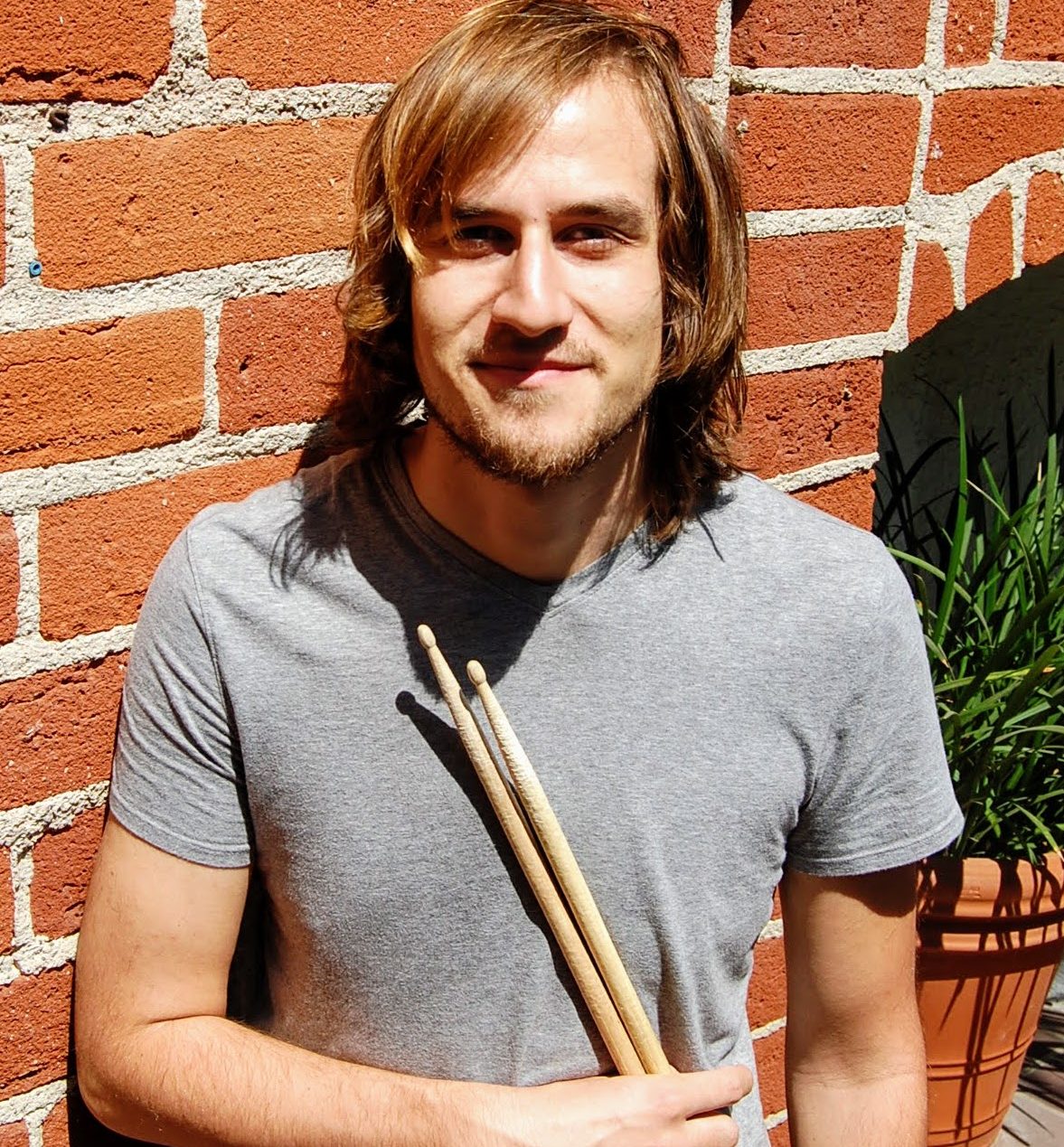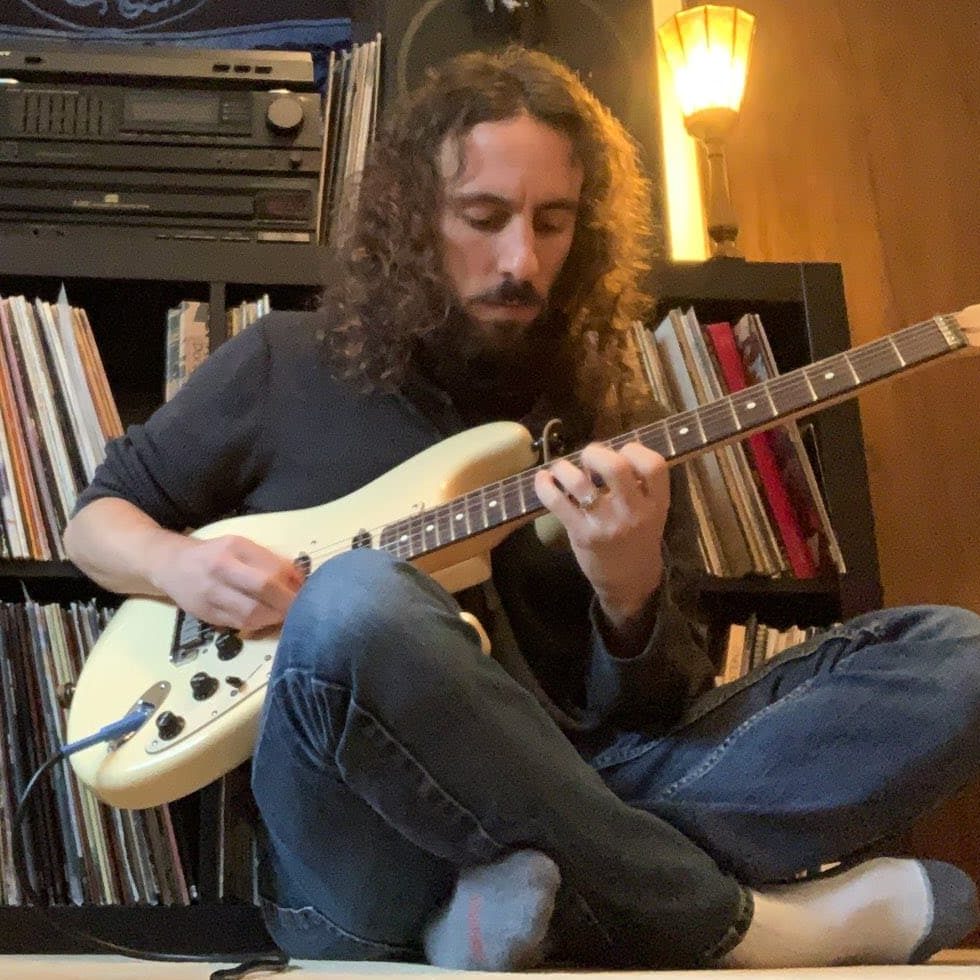Sing, Sing, Sing! Meet Ashley, Our Voice Coach
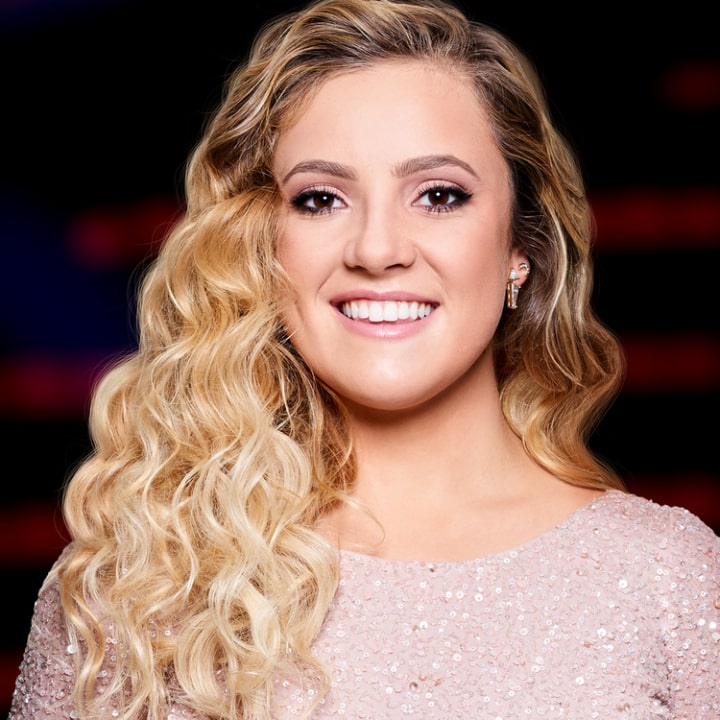
Voice lessons with Ashley!
Ashley is an exceptional voice coach. As a pro session singer, featured on “The Voice,” she is super-versatile, able to seamlessly move from pop/r&b to country without skipping a beat, and sounding as if she specializes in each genre along the way! Ashley loves giving piano and voice lessons to students of all ages. Please enjoy our interview and give us a ring to get started with lessons!
When did you start singing? I’ve been singing ever since I can remember! I grew up in a very music friendly household, so there was always some kind of music happening around the house!
Instruments and styles you teach? I teach voice primarily, all levels, but also, beginning piano! I specialize in all styles really! Everything from classical to jazz to R&B to pop to country!
What was music like for you as a kid? All my siblings and I were involved in performing. We took dance classes, participated in choirs, violin ensembles, piano lessons etc.
What is your educational background? I attended a fine arts middle and high school, then studied Jazz Vocal Performance at The University of Miami.
Who are some of your favorite musicians? Ooo! I love Stevie Wonder, Dolly Parton, Indina Menzel, Ben Platt, Pink, Bruno Mars, and SO many more!
What advice would you give a beginner? Even if starting out seems tough.. you will start to progress more quickly than you think! Stick with it! I promise it’s worth it!
What are some of your favorite instructional books or materials? Hanon for piano! All classical repertoire for building strong vocal technique.
What are the essential things for a beginner to have? Keyboard and a good work ethic!
What is your teaching approach/philosophy? I focus heavily on setting a solid foundation, based around reading music. Whether for piano or voice, reading music is the NUMBER ONE most important skill you can have as a musician.
What are some of your favorite things about teaching? When a student is proud of learning something new!
Do you offer in-home lessons? Online lessons? Studio lessons? I offer in-home and online lessons.
Memorable gig story? One time, I was singing at an event, and Lionel Richie came up to sing a few songs! Amazing!!!
Favorite instrument or piece of gear? Forever the piano! It’s so beautiful and versatile.
Favorite thing about living in Los Angeles? All of the amazingly talented people living here for the industry!
What do you enjoy doing, when not teaching? Writing songs, singing at my own gigs, and dancing/exercising!
To get started with voice lessons with Ashley, all you need to do is sign-up!
Meet Our Saxophone Teacher, Ari!
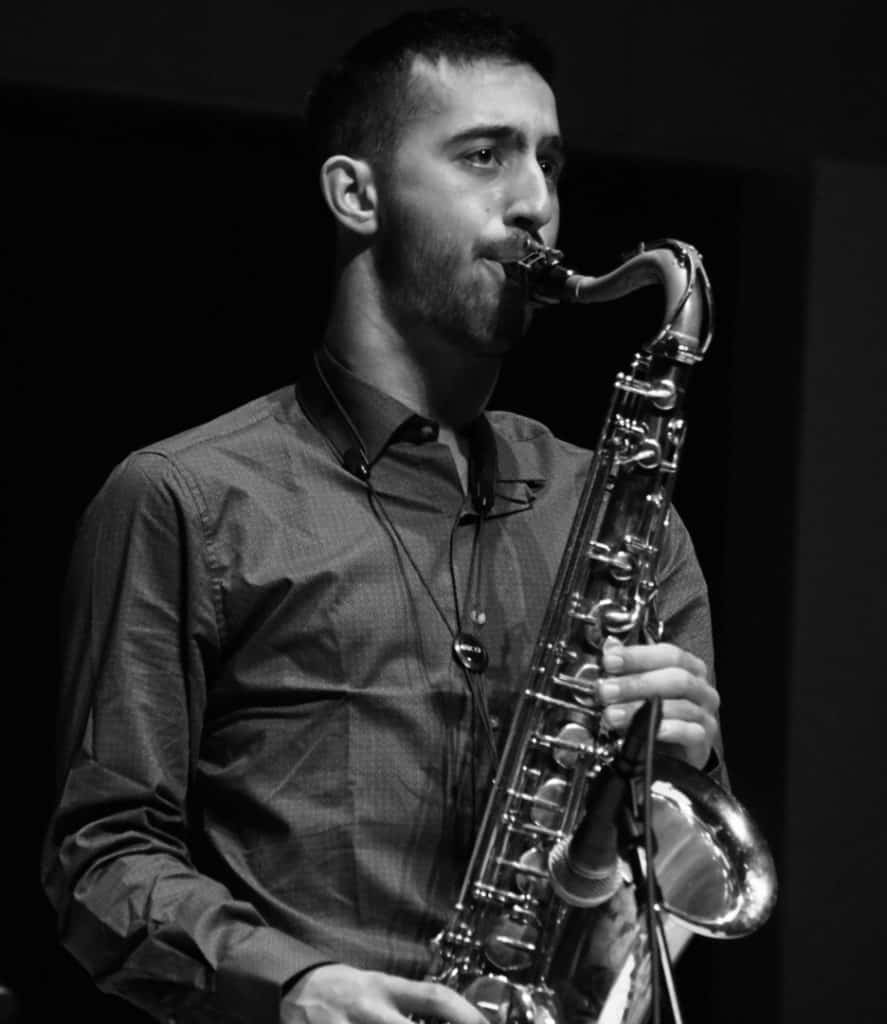
Saxophone and clarinet lessons with Ari
Please meet Ari, our terrific saxophone, clarinet and flute teacher!
When did you start playing? I began playing clarinet in fourth grade and then saxophone in high school. At a young age I was inspired my music teachers’ love of music. I then feel in love with jazz and it’s messages and cultures. My curiosity about jazz and other styles of music inspired me, and continue to inspire me today.
Instruments and styles you teach? I teach alto and tenor saxophone, clarinet, and flute. Although my specialty is in jazz saxophone, I work with all students to help them find their own musical passion.
What was music like for you as a kid? As an elementary school student I played in jazz band and orchestra. In middle school and high school I continued with these school ensembles in addition to playing in a New Orleans style brass band, a funk band, a contemporary and improvised music ensemble, and more.
Tell us about your educational background In middle school and high school I studied with Los Angeles based clarinetist, saxophonist, and composer Brian Walsh. I graduated with honors and was awarded a distinguished graduate in the field of jazz from Sonoma State University, where i studied with alto saxophonist and composer Kasey Knudsen. I am always working on my own playing and composing. To me this means having a mentor, which I have found in tenor saxophonist and composer Daniel Rotem.
Tell me about some of your favorite instructional books or materials Although I have a few favorite method books, including the Essential Elements book for beginning students, I like to use instructional books as supplemental resources. I engage with the student’s interests and use their favorite songs or connect their interest to teach melody, harmony, and rhythm.
What are the essential things for a beginner to have? A student must have their own instrument (rented or owned) and any cleaning supplies. All other supplies or books will be shared later after evaluating the student’s needs.
Tell me about your teaching approach/philosophy I have a student centered teaching philosophy. I believe each individual student is unique, so I am aim to their learning style as opposed to any particular method. I aim to spark the student’s creativity and curiosity and I encourage my students to advocate to me what interests them the most. We will be able to learn rhythm, harmony, melody, basic ear training, and more through standard repertory and learning their favorite songs.
What do you enjoy doing, when not teaching? In addition to playing music and teaching, I enjoy hiking, surfing, indoor bouldering, cooking, and spending time with friends and family.
For clarinet, flute and saxophone lessons with Ari, sign-up or give us a ring (310) 439-9798. To learn more about our lessons, please visit Red Pelican Music.
Interview With Our Violin Teacher, Lily!
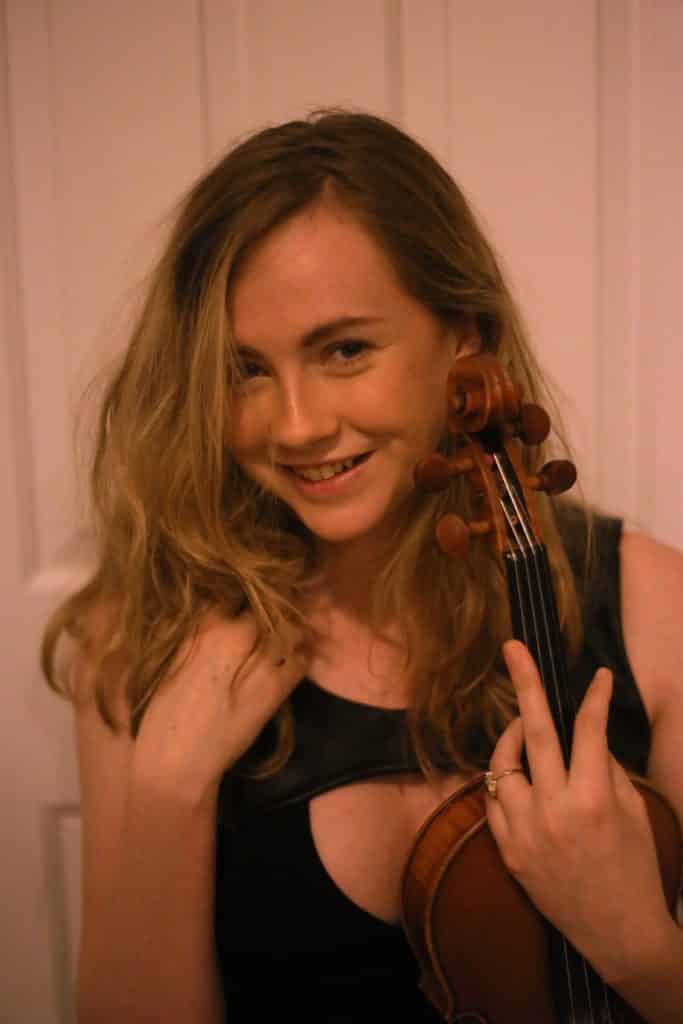
Violin Lessons with Lily!
Lily specializes in violin, viola and piano lessons – she’s also a terrific songwriter! Please enjoy our interview, and sign-up to get started with lessons!
When did you start playing? My first music lessons started when I was 8. I began playing violin because I heard my big sister practicing and wanted to be like her and learn too!
Instruments and styles you teach? I teach violin, piano, and viola. I like to balance the strengths that can be learned from classical technique with the joy and groove of pop, folk, and Americana. A couple specialties I have, are working with younger students to create lessons that are active and fun, and helping adult students start or get back into music!
What was music like for you as a kid? I had comprehensive classical violin training with a lot of chamber music and orchestra playing, but I also went to bluegrass jams on the weekends and wrote lots of songs and tunes. I loved making music with my friends and we formed a band from middle school onward!
Tell me about your educational background
I went to Berklee College of Music in Boston! My major was in music performance and songwriting. As a performer I studied classical music deeply from Bach to Brahms, and learned improvisation skills in jazz and folk traditions. As a songwriter I focused on music production, recording, and how to write catchy melodies and memorable lyrics!
Tell me about some of your favorite musicians. I love Joni Mitchell’s wandering melodies and intricate lyrics! Both Joni and Fiona Apple have beautiful unconventional ways of using piano accompaniments in their writing. My favorite string players are Janine Jansen and Hilary Hahn. Janine has a very emotionally resonant way of interpreting classic pieces, and Hilary Hahn’s violin tone is so pristine!
What advice would you give a beginner? It’s better to do short consistent practice sessions than to practice for a long stretches of time here and there. Think of music as part of your daily routine just like brushing your teeth. Setting aside as little as 15 minutes can add up if you go for it regularly! Also be patient with yourself. Music takes time but it’s so fulfilling and worth it!
Tell me about some of your favorite instructional books or materials Here are a couple highlights:
1.) For young piano beginners I love the “My Very First Piano Adventure” series. They’re visual, approachable books that give students a methodical but fun education in reading and listening at a pace suitable for little ones!
2. For beginning string players the All For Strings books help students be grow confident reading skills, and the Suzuki method does a great job of developing student’s listening abilities and giving them melodic songs to learn early on.
I also love to pull material from what my students enjoy listening to: we’ll use the songs they play on repeat in their headphones as tools for musical growth!
What are the essential things for a beginner to have? It’s important for you have an instrument that you enjoy the sound of and feel comfortable playing; you’ll be much more motivated to practice that way! I am always happy to help my students with the process of finding an instrument if they don’t have one yet.
Tell me about your teaching approach/philosophy. I like to take a warm, encouraging approach! It’s important to me to explore ways for my students to have fun and be creative on their instruments. I believe it’s possible for lessons to be engaging while building great technique, it doesn’t have to be an either/or.
What are some of your favorite things about teaching? I love the puzzle of figuring our how to make each of my students excited and interested in music. Everybody deserves a unique approach. The process of discovering what makes a particular student tick and helping them learn and master that thing is so rewarding!
Do you offer in-home lessons? Online lessons? Studio lessons? I offer all three currently! My studio is in the North Hollywood arts district. I have both an outdoor patio or an indoor lesson space so that I can be flexible depending on what my student is most comfortable with!
Memorable gig story? Once I was performing with a band in an indoor auditorium and the power went out. We just kept on playing in the complete dark and everybody in the audience cheered us on and held up their phones, to help light the way for us!
Favorite instrument or piece of gear? I have a beginner electric bass that I’ve named Agnes, that I absolutely love playing for fun!
Favorite thing about living in Los Angeles? There are so many creative people to surround yourself with here! Also where else has the beach, the mountains, the desert, and the forest all within day trip distance?
What do you enjoy doing, when not teaching? I like hiking, drawing with oil pastels, solving puzzles, and cooking!
To get started with violin lessons, give us a ring: (310) 439-9798, or sign-up!
Meet Our Guitar Teacher, Will!
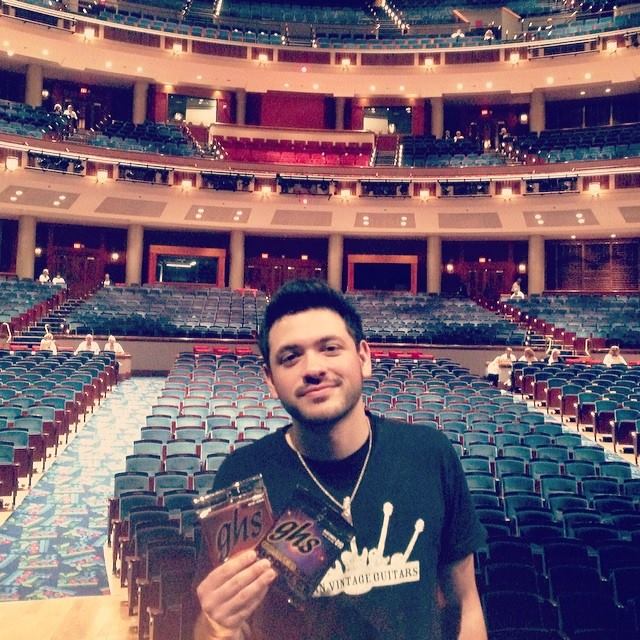
I’m guessing that Will is a GHS guitar strings endorser 🙂
Will is a terrific session guitarist, known for his fun style of teaching! He specializes in guitar lessons, ukulele, mandolin, bass and tres. (a super-cool Cuban instrument that sounds a little bit like a 12-string guitar). Please enjoy our interview, and drop us a line to schedule lessons!
When did you start playing? I started playing guitar when I was 9 and took it really seriously around 11. I wanted to play trumpet in band, but instead my Nana brought me back a guitar from Venezuela. Glad she did!
Instruments and subjects you teach? Guitar, uke, songwriting, bass, mandolin, and multiple Latin stringed instruments. I teach all styles and specialize in helping students reach their own individual goals and missions!
What was music like for you as a kid? I loved it so much – would run home from school to play, and at 14 was sneaking into Chicago jazz clubs. I started playing professionally in Chicago at 16. Went on to earn a BA in Music Education and Jazz Studies, from University of Illinois.
Tell me about some of your favorite musicians. Jimi Hendrix, Wes Montgomery, Miles Davis, Tame Impala, Carlos Santana
What advice would you give a beginner? Learn the basic steps even if they seem boring as first. If you take something twice as slow, you’ll learn it twice as fast
What are the essential things for a beginner to have? Instrument, accessories and patience!
Tell me about your teaching approach/philosophy. I prefer to teach based off of each student’s individual goals versus method books. I do this because each student is a different type of learner, has different reasons for getting into music, and has to be treated differently to achieve their goals.
What are some of your favorite things about teaching? I love seeing students work hard to achieve their goals. That moment where they can’t believe how much they’ve grown, or can play a song they always wanted to learn, is priceless!
Do you offer in-home lessons? Online lessons? Both online and in-home lessons.
Favorite gigs? Playing Coachella and various recording sessions at Legendary Los Angeles studios.
Favorite thing about living in Los Angeles? Large pool of talented musicians!
What do you enjoy doing, when not teaching? Producing and Songwriting with artists of all genres
That’s all folks! Hope you enjoyed our interview with Will. Ready to get started with lessons? It’s easy – just sign-up or give us a ring! (310) 439-9798
Cello Lessons With Trevor – Interview!
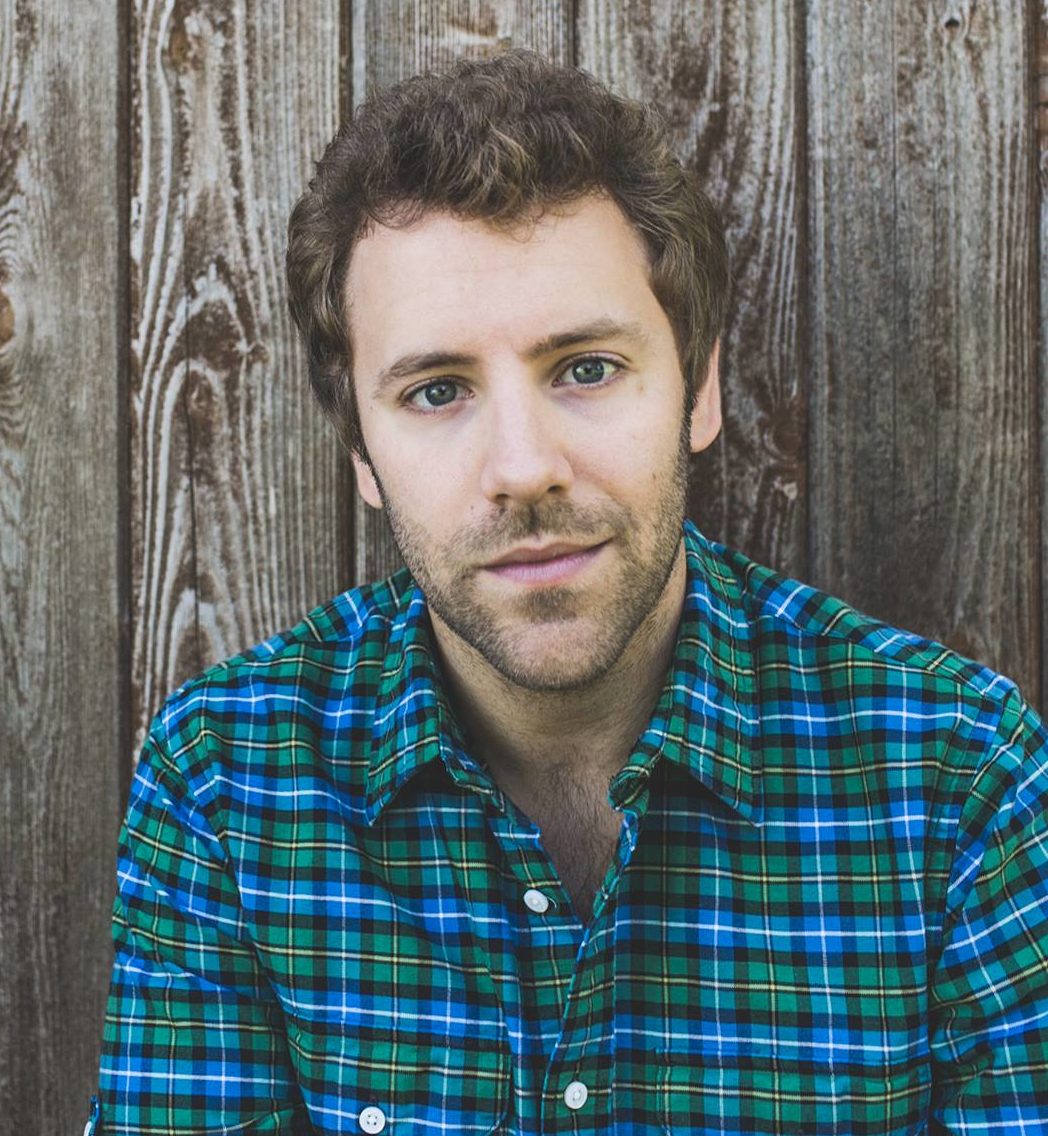
Cello Lessons with Trevor – Red Pelican Music
Please enjoy our interview below, with Trevor, cellist extraordinaire. Trevor. Trevor is wonderful with classical and pop-oriented cello students of all ages. He gives in-home cello lessons in the Los Angeles area, and also teaches from his studio in Playa Del Rey, and virtually, worldwide! To get started, sign-up for cello lessons or give us a ring (310) 893-0776.
Got your coffee? Great! Time to learn about Trevor . . .
When did you start playing? I started playing the cello around age 7. Growing up, there was always lots of music around the house thanks to my dad, who plays a number of instruments and was always making music of one kind or another. He did have a cello and played it here and there, although it wasn’t his main instrument. Not sure exactly what it was that drew me to the cello in particular, but I do know it was my idea!
Instruments and styles you teach? Specialties? I teach the cello across a pretty wide range of styles. My background is classical, and I’d say that’s still the bulk of what I teach, but I love integrating folk, jazz, and rock styles into my lessons as well if the student is up for it. I consider my versatility to be my strength as a teacher.
What was music like for you as a kid? I fell in love with music from a very early age, mostly thanks to my dad. He played various instruments and sang professionally for years before I was born, and he was constantly playing and listening to music around the house while I was growing up. I studied classical cello pretty seriously from about age 7 on, but I also started playing in bands, writing songs, and taught myself some basic guitar and piano as well. To this day I love working in all kinds of musical styles.
Tell me about your educational background I grew up studying classical cello and playing in youth orchestras in the Boston area. I was pretty serious about it, and ended up attending Berklee College of Music after that, where I branched out to learn how to play cello in all kinds of other styles of music, and also studied a bit of songwriting.
What advice would you give a beginner? Technique is important, because it gives us the tools we need to speak as musicians, but it’s also important not to lose sight of why we’re playing in the first place! Making music should be rewarding and fun, and sometimes that’s easy to forget that when we’re so busy learning where to put our fingers, proper bow hold, posture, etc.
Tell me about some of your favorite instructional books. I like the Suzuki books as a starting point and a foundation, but I’m always open to mixing it up and introducing folk/jazz/rock-influenced repertoire to give us a break from all those Bach Minuets. 🙂
What are the essential things for a beginner to have? Cello and bow of course, probably rented at first, especially if it’s a younger student who needs a smaller instrument. Also a music stand, rock stop/endpin anchor, and some sort of tuner and metronome (these can easily be found as apps on your phone these days if you like).
Tell me about your teaching approach/philosophy. I try to strike a balance between traditional classical study, with its strong technical foundation, and integrating non-classical repertoire and embracing the cello’s role in the modern music world…especially if the student is particularly interested in mixing it up more.
Do you offer in-home lessons? Online lessons? Studio lessons? I’m open to all three! Online lessons have been a wonderful way to keep things going during the pandemic, but I think most students would agree that they simply can’t match the experience of working in person.
Favorite thing about living in Los Angeles? It’s pretty hard to beat the weather and the incredible natural beauty of Southern CA!
What do you enjoy doing, when not teaching? I love good food and drink, very much looking forward to dining out more frequently again as the world opens back up! I also love hiking, traveling, and the ocean.
Well that’s all folks! Hope you enjoyed our interview with Trevor. If you’d like to start cello lessons with Trevor, please drop us a line, (310) 439-9798, or sign up!
Lessons with Josh – Interview!
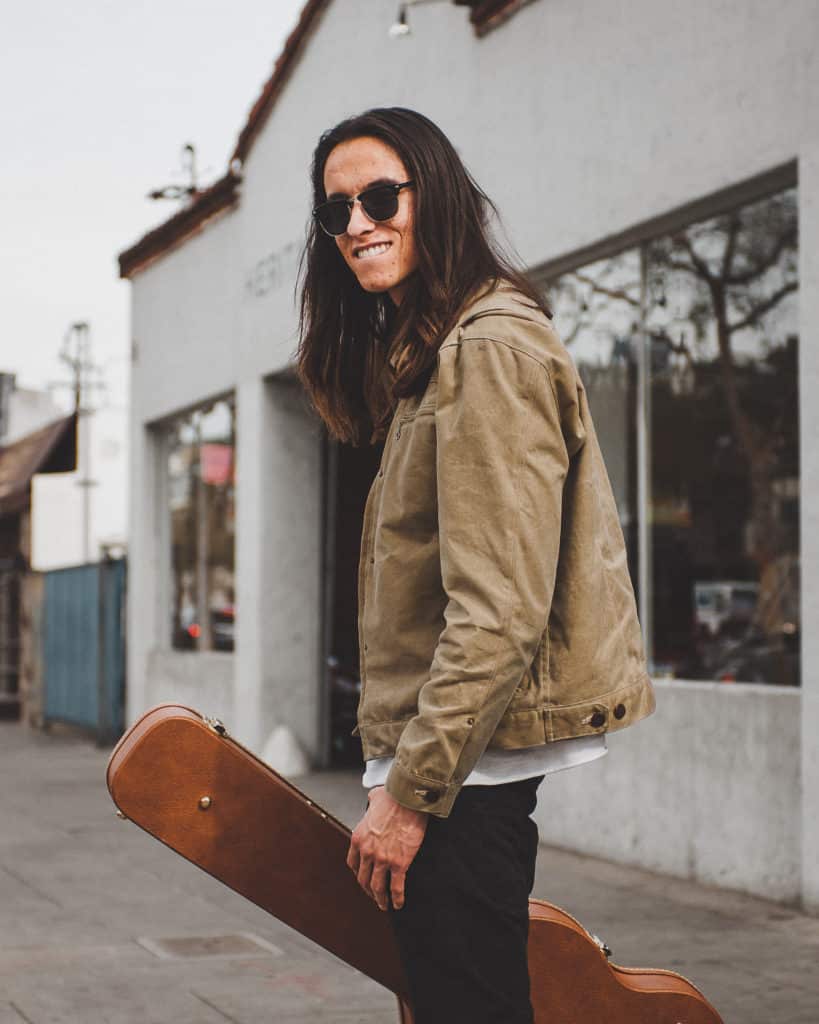
Lessons with Josh!
Josh is a wonderful multi-instrumentalist, specializing in bass, guitar and ukulele – and those are just the instruments he teaches. Rumor has it that he’s great with flute and piano as well. Josh gives in-home lessons in the Los Angeles and Pasadena areas (teacher comes to you), and also live online lessons worldwide. Enjoy our interview below and reach out, if you’d like to schedule lessons with Josh.
Tell me about your the instruments and styles you teach. I teach bass, guitar, and ukulele. I love playing different styles/genres and different instruments- every genre of music appeals to a different demographic, and through playing gospel, rock, country, classical, blues, and other genres of music you get the opportunity to meet a variety of people from different walks of life. I love learning different instruments because they all serve different roles in bands/ensembles and they give a new perspective on your musicianship.
When did you first start playing? My mom started me out on piano at age 5, (she’s a piano teacher), and music was always present in the house. My dad never played an instrument in his life, but he opened my eyes to genres outside of classical music, especially rock music. This led me to pick up the electric guitar around age 12.
What was music like for you as a kid? I was always playing 2 instruments at a time. As an adolescent, I played the piano and flute and my mom kept me involved in the music community with recitals, performances, and competitions. In my teens, I continued with flute, and dropped the piano to pick up the guitar. I studied classical flute pretty seriously, and was absolutely obsessed with the guitar. My high school years consisted of flute competitions, orchestras, and playing guitar in the school jazz ensemble and a friend’s rock band.
Tell me about your educational background. Growing up, I was always taking music lessons on one instrument or another, and was involved in many music programs. I also received my BM and MM in studio/jazz guitar from University of Southern California.
What advice would you give a beginner? Pursue the musical subjects that interest you. Understand that becoming a great musician takes a lot of time and work; you get back what you put into it!
What are the essential things for a beginner to have?
-Instrument
-Amp, cables, picks (if applicable)
-Some sort of instructional book
-A great attitude and great listening skills
Tell me about your teaching approach/philosophy. Every student has a different background in music, and has different interests and goals. My teaching style varies depending on the styles of music and students I’m teaching. Generally, I teach functional skills, technique, and music theory, and use a genre of a student’s choice to incorporate all these skills into the music they enjoy.
What are some of your favorite things about teaching? Every teacher loves those “breakthrough” moments with their students. Recently, I was teaching a student some basics of jazz theory, and he it opened up an entire new world for him in regards to soloing and creating new ideas.
Favorite styles of music to teach? Blues, rock, slide guitar, and gospel music.
Where do you live? I live in Pasadena, across the street from Pasadena City College.
Memorable gig story? I was playing a wedding gig in Temecula. By the end of the night, all the men had ripped off their sleeves on their dress shirts, (they told me it’s an Australian tradition to rip off your sleeves once the workweek is done, and take the buggies off-roading*). The groom asked me if it was okay if he ripped off my sleeves, and after I said no, he quickly used his teeth to rip my sleeve off. At that point, I allowed him take the other sleeve too. They were nice enough to refund me for the shirt (it was actually my favorite dress shirt).
*Editor’s note: We have no idea if this indeed a tradition or simply an unusual wedding 😉
Favorite instrument or piece of gear? 60’s P-bass. Likely the most recorded bass sound of all time, and it’s still the standard today!
Favorite thing about living in Los Angeles? There’s always something to do, and always great music happening.
What do you enjoy doing, when not teaching? I enjoy gardening, biking, and playing video games with family (when time allows).
That’s all folks! Interested in lessons with Josh Give us a ring (310) 439-9798, or sign-up!
Buying a Keyboard – Advice for New Piano Students

Of course there is no replacing a beautiful Steinway, so if you have the money and space to buy a very nice piano, please do so! For everyone else . . .
You might consider the Yamaha P45 — It’s full-sized, weighted keys, and has hammer-action, so it will play/feel/sound very close to a “real” piano. The P45 is in the sweet-spot of nice quality at a good price. Online ordering is a good way to go, because you can have your keyboard delivered, rather than trying to fit it into your car 😉 There are nice bundles that include the keyboard, pedals, bench, stand, etc. The furniture style ones are especially nice. For those who are assembling their own “bundles,” if the student is on the smaller side, it’s a good idea to get a height-adjustable stand and/or bench. Here’s a good basic adjustable stand, and here’s a simple adjustable bench.
The P45 is meant to replace a piano. It will have also have some fun sounds to play with, but they will be more classic keyboard-oriented sounds (organs, Rhodes-style keyboards, harpsichord, etc), rather than synthy electronic pop stuff. For fun sounds, you could connect your keyboard to GarageBand, Logic, Reason, or any other audio creation software, and use a limitless number of interesting sounds (and perhaps explore production in the future).
For young beginners, you would be okay with a mini-keyboard, like the NP-12. Another idea is the Alesis Recital, which is full-sized, but does not have weighted keys. These choices are a fun way to get started on a budget. If you go with something like the NP-12 or the Alesis, you’d want to upgrade to a full-sized instrument fairly quickly.
Alternatively, you could get more of a synthesizer-style keyboard, but they frequently don’t come with nice full-sized weighted keys, unless you are going for something like a Nord (wonderful, but expensive – more of a pro stage keyboard).
While there is nothing like the “real-thing,” it’s pretty easy to make a case for going the keyboard route. Advantages: cost, portability, midi capability (connect to your computer), no need for a piano tuning, movers, etc. The main thing, is learn how to play it! Red Pelican Music offers wonderful in-home and studio piano lessons in the Los Angeles area, as well as online (remote or virtual) lessons worldwide! Give us a ring (310) 893-0776, or sign-up to get started!
Drum Lessons With Logan!
Logan has a deep love for teaching drums. Whether you are a 5-year-old beginner or an adult with a ton of experience, you’ll be energized by his enthusiasm and talent. Please enjoy our interview with Logan, and sign-up to get started with drum lessons! (If you are not in the Los Angeles area, don’t fret, Logan also gives lessons worldwide via Zoom or FaceTime. Same great quality, without an airplane ticket 😉
Without further ado, here’s the interview:
When did you start playing? I first started in 6th grade band when all students were given the choice between concert band, orchestra or a “study skills” class as a mandatory elective – wasn’t at all on my radar to start learning an instrument, but another percussionist in the band took drum set lessons and would play on the kit in the band room for certain pieces or before/after class, and I first learned how to play a few different drum set patterns by watching what he did and then later trying to match what he did just by tapping with my hands and feet (sometimes in other classes instead of paying attention!). I then distinctly remember a day I had to drop something off at the band room after school, and the kit was just sitting there, and so with no one else there and I finally attempted to play what I had worked out, and I was immediately hooked! Started formal lessons soon after.
What was music like for you as a kid? Took lessons for a while, and during high school I partook in almost everything – concert band, jazz band, pep band (I come from a small town so we didn’t have a formal marching band), musicals, summer camps, etc as well as jamming with guitarist buddies – was fortunate enough to get to play in a couple cover bands with friends towards the end of high school
Tell me about your educational background. Graduated from University of Southern California’s Popular Music Program in 2013
Tell me about some of your favorite musicians. Tons of favorite drummers – Steve Jordan, Josh Freese and Matt Chamberlain influenced me a lot.
Tell me about some of your favorite instructional books or materials. “New Breed” by Gary Chester is amazing once you have a basic handle on how drum set patterns work. “Future Sounds” by David Garibaldi is actually something I was worked through for the first time during the pandemic and think it’s genius, although it’s a little on the advanced side. “Stick Control” and “150 All-American Solos” are classics for the hands that also help tons for drum set players.
What are the essential things for a beginner to have? Honestly any kit works great, if you know how to play with care, and also spend time learning how to tune a kit – getting a good quality throne though can be a game changer, and is usually the first upgrade most people recommend. Sound isolating/cancelling headphones are a must.
Tell me about your teaching approach/philosophy. I try to get students to be able to do what they enjoy most – learning as quickly and efficiently as possible, whether that’s being able to play along to their favorite songs, fine tuning their vocabulary and technique, diving deeper into complexities of drum set, or developing skill sets that are needed for playing on a professional level. I emphasize teaching the techniques/concepts that I had figure out myself throughout years of touring and recording and playing, in addition to the things that were most valuable from private lessons.
Favorite styles of music to teach? Any and all! As my students know, the playlists that I pull from, for song projects and examples of concepts we cover, is all over the place, which is super important – developing taste as a musician is really critical, and the only way you do that, is by listening to tons of stuff
What are some of your favorite things about teaching? While there are tons of frustrating moments that happen when you learn an instrument, I feel that there is a very apparent joy when people progress musically and start being able to engage with music in ways they couldn’t before, and it’s always awesome to be a part of that 🙂
Interested in drum lessons with Logan? He offers studio and in-home drum lessons in West Los Angeles, as well as online lessons. Give us a ring (310) 893-0776, or sign-up!
Drum lessons with Neil
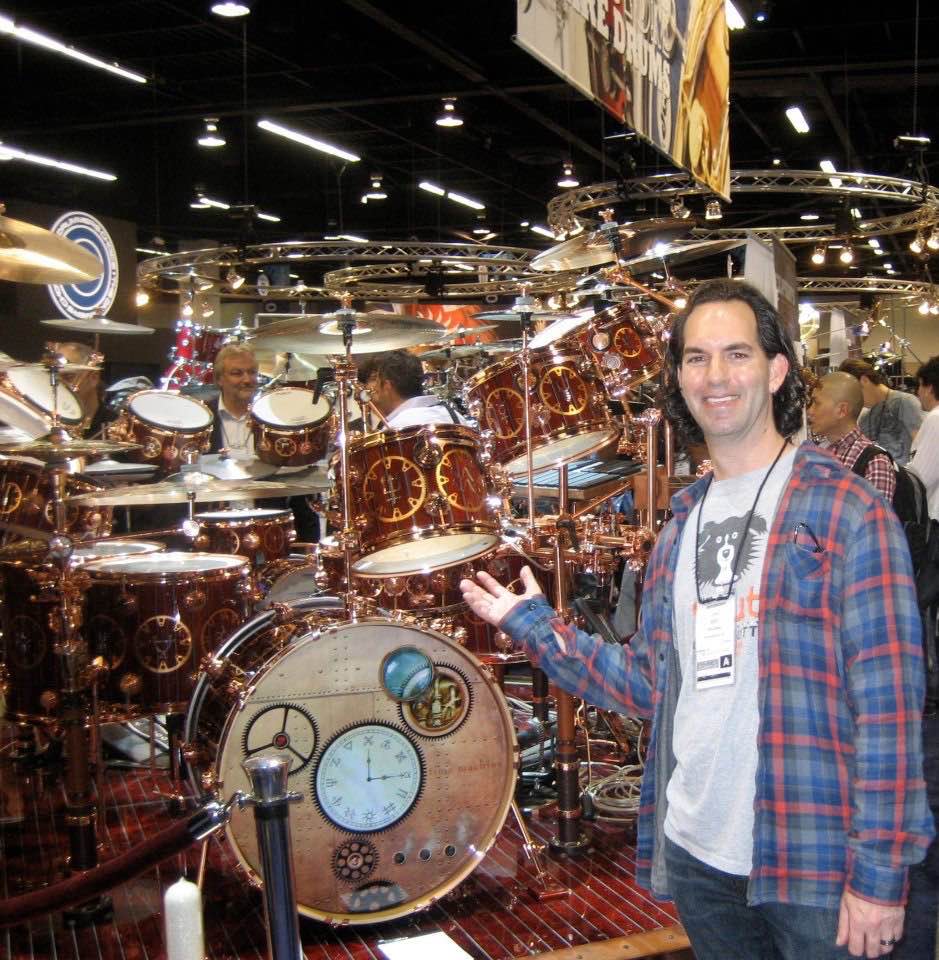
Neil, admiring a clock-themed drum set. Got to stay on time!
Neil has been giving drum lessons for over 30 years! In our interview below, he shares his story and offers great advice and book recommendations for those who are just getting started with drums. Neil gives studio and in-home lessons in the Los Angeles and Malibu areas. He offers online lessons too! (available everywhere via Zoom or FaceTime). Drop us a line to schedule or sign-up!
What inspired you to start playing drums? Banging on pots and pans inspired me to start drumming 😉 Got my first drum set for my 10th birthday.
What was music like for you as a kid? I was self taught for 3 years by listening to music and playing along with songs. Also spent lots of time jamming with my brother who played guitar.
Tell me about some of your favorite musicians? Neil Peart is my all time favorite. Other favorite drummers are Steve Smith, John Bonham, Stewart Copeland, Buddy Rich. . . There are so many great musicians out there and one can learn something from all of them.
What advice would you give a beginner? Definitely take lessons right from the start, learn how to read music and play with as many different people as you can. Listen to all styles of music and strive for being able to play every style. Versatility is key. Spend lots of time practicing with a metronome.
Favorite instructional books and materials?
Basic Drumming by Joel Rothnam.
Future Sounds – David Garibaldi
The New Breed – Gary Chester
Advanced Funk Studies – Rick Latham
Brazilian Coordination For Drumset – Maria Martinez
Afro-Cuban Coordination For Drumset – Maria Martinez
Contemporary Rudimental Studies and Solos – Lalo Davila
What are the essential things for a beginner to have? 5A weight drum sticks, a practice pad, and a basic five piece drum set with a ride cymbal and two crash cymbals.
What are some of your favorite things about teaching? I love imparting knowledge. I love teaching different age groups and people from all different walks of life with different personalities. Teaching for me is not a job, its my passion!
Favorite styles of music to teach? I’m a firm believer in versatility and love teaching all styles of music.
Where do you teach, geographically-speaking? I teach locally in Malibu, where I reside. I also have a studio in West Los Angeles. I also do a lot of house call lessons on the west side.
Memorable gig story? 15 years old, 15000 people and the set stated with a drum solo, so had to walk on stage on my own. I ended up playing all the songs twice the speed! A very fun, memorable, but nerve racking experience.
Favorite thing about living in Los Angeles? Blessed to live in Point Dume, at the beach and enjoy small town beach living!
Interested in drum lessons with Neil? Give us a ring (310) 893-0776, or sign-up!
Metal Guitar Lessons with Jeff!
Jeff is an amazing guitarist – our resident metal expert, and a great guy! Please enjoy this interview – chock full of good advice, and some funny road stories too! And, of course, drop us a line to schedule guitar lessons with Jeff! He currently offers in-home or in studio guitar lessons in Seattle. Virtual lessons are also available!
When did you first start playing? I fell in love with music at a really early age – after being totally mesmerized by my elementary school’s concert band, I begged the music teacher to let me join a year early. So I picked up the tuba (the biggest and loudest choice available to me at the time) in 4th grade. Two years later, I heard Led Zeppelin on the radio and immediately asked for a guitar, which I got for my 12th birthday.
What was music like for you as a kid? As a kid, music was exciting! YouTube didn’t exist yet and there weren’t a lot of teachers where I grew up, so while I learned to read music in my school’s concert band (which I did all the way through high school), guitar was a split between some lessons and a LOT of self-guided exploration. I had three friends who also played, and we would stay up all night learning songs, figuring out new sounds, jamming, listening, writing, and absorbing whatever we could. I was buying a lot of theory books and was so excited to figure out how it all fit together. A few of us made a band and wrote some songs, but there weren’t any venues… so the real education happened when we had to learn 3 or 4 hours of cover songs to play at backyard parties.
Tell me about some of your favorite musicians. My favorite musicians have usually fallen under the description of, “rockers who have done their homework” – and they led me to really broaden my horizons.
My first love was Jimmy Page. His versatility is off the charts, he never plays anything the same way twice, and he plays the instrument with his entire body. But more importantly, he produced all of Zeppelin’s records and made all those compelling soundscapes, from folk to heavy metal to psychedelia. He really covered a lot of ground in a tasteful way and introduced me to blues and folk music. I owe my love of folk greats like John Renbourn, Bert Jansch, and John Fahey to my early love of Zeppelin.
As a teenager, I spent a lot of time with the shredders like Eddie Van Halen. How can you not love Eddie? He changed the way we use our gear, he wrote the book on technique, his playing sounds like his guitar is on fire, his songs are as catchy as can be, and he did the whole thing with an infectious smile plastered on his face. The search for faster shredders led me to Yngwie Malmsteen. People focus on his speed, which was jaw dropping for me, but his musicality, his tone, his vibrato, his phrasing… he clearly heard things differently from most guitarists, and that led me into the world of classical music. Same with Michael Romeo, who I still think is the best “real composer” to step into the heavy metal world. His virtuosity is crazy, but the important thing was that his music opened my ears to more modern composers like Stravinsky, Bartok, Prokofiev, etc.. These days, most of my listening is in that world, from Bach to Mendelssohn to Debussy and everyone in between.
I can’t go without mentioning Brian May from Queen – the most tasteful and melodic player out there, with a brilliant sense of harmony and arrangement. My 20’s were a deep dive into his music and I learned a lot that I’d skipped over in my quest to become the fastest shredder.
I had thought that I’d already discovered all the great 70’s rock guitarists when I stumbled upon Rory Gallagher. Not only is he the guy who taught Brian May how to get his tone, he’s the most charismatic guitarist I’ve ever seen. He’s just so down to earth and charming, and his connection with the music and the audience was nothing short of spiritual! There’s a real honesty in his playing and his performance – everything is from the gut, everything is in the moment, and he never plays the same thing twice. It’s just real! After years of trying to be a technical wizard, I’ve found that the real wizardry is in the kind of playing that Rory does.
What advice would you give a beginner? There are two things you have to do to become a musician: listen to a lot of music, and play a lot of music.
Listening to a wide variety of things will help you develop a true love of music, and that will be more valuable to you than any amount of studying. Studying is great, and hard work is great, but the love of music is what keeps us going throughout the years. And when I say “play” a lot music, I really do mean that. This is PLAYING! You’re allowed to get messy. You’re allowed to try things, even if they’re silly. Don’t be afraid to mess up or make mistakes – you WILL make mistakes, and if you don’t, then you’re not learning!
Tell me about some of your favorite instructional books or materials. My personal favorite method book is called “The Olcott-Bickford Guitar Method” which is a complete guitar method from the 1920’s by Vahdah Olcott-Bickford, one of the first famous female guitarists. I think it’s the best way to learn to read music for the guitar. I was given a dusty old copy of it and have made countless copies and scanned tons of pages for my students.
Another favorite book is William Leavitt’s “Classical Studies for Pickstyle Guitar,” a collection of really cool classical pieces that can be played with a pick. Guitarists have been mining this book for inspiration for decades! I still have my beat up copy that I got 20 years ago and I play from it all the time.
I also love Ben Levin’s YouTube channel. He discusses theory in really interesting ways, and so much more of the parts of being a musician that people don’t talk about – performance anxiety, frustration if you’re not ‘getting better’, music as a career choice, etc..
What are the essential things for a beginner to have? Things have progressed so far in the last few years that beginners don’t need much to get started. If you’re playing acoustic guitar, then a guitar and a smartphone will get you most of the way there. You can download a tuner and a metronome now! With an electric guitar, you need a guitar, cable, amp, and phone. Smartphones also have the handy ability to let you videotape yourself, which is essential for improving your playing.
Beyond that, all you need is the willingness to make the time to play, a love of music, and hopefully some open-mindedness and curiosity!
What are some of your favorite things about teaching? Teaching is incredibly rewarding. I started doing it because I’d been in bands with people who teach, and they always had a great clarity to their playing. I realized it’s because they spent hours focusing on the basics and it made their foundations really solid, so that was my selfish reason to get started! 🙂
But I quickly found that it’s so much more than that. Music is a joyous thing that humans have been doing since the dawn of time, and helping people learn to take part in it is a wonderful experience. Even the most shy and reserved people can’t help but light up when it “clicks” and they start to get sounds out of their instrument.
My favorite moment is when a new musician finds their footing, and I go from teaching them to walk to guiding them on the journey. It usually goes like this: a few months into lessons, I point out to a student how far they’ve come. It’s so gradual that they hardly notice it, but there’s always a lesson when I say, “Hey, let’s go and revisit those songs that seemed impossible 3 months ago,” and they breeze through them in five minutes. Then they see their progress, and there’s a renewed confidence going forward that’s amazing to see. Everything starts to snowball from there and after that, they’re coming to lessons showing me all the things they’ve explored on their own and it’s all I can do to rein them in to work on one thing at a time!
Favorite styles of music to teach? One of the best parts of teaching is how it’s broadened my horizons into lots of different kinds of music.
I have a lot of fun teaching rock and roll and heavy metal – I spent my formative years playing that stuff, and toured the world doing it, so I can bring a lot of very practical knowledge to the table. Loud, rude punk music DOES have an art to it, and historical context, just like jazz or classical music. I really enjoy showing people the chronological progression of music, how players influenced each other over the years, and how we made it from Chuck Berry to speed metal virtuosity in just a few decades.
Blues and folk music are also really enjoyable to teach because they’re so improvisational. It’s so rewarding for new musicians when they learn that they can play simple music that lets them add their own ideas and personality to what they do, rather than “getting all the notes right.”
Lastly, a lot of modern indie stuff is incredibly fun to work with. The electric guitar has so many cool sonic possibilities, and indie rock is a great way to show someone how to experiment with that stuff. This music is also a great way to learn the art of songwriting, and it can bring in elements of other genres from folk to punk.
Pros and cons of online guitar lessons? Thanks to COVID-19, I’m doing all my teaching online. But I currently live in Seattle! Online teaching has been the name of the game for over a year now, thanks to the pandemic. I was really apprehensive about it at first, but I’ve found that there are pros as well as cons.
To be honest, the difference hasn’t been as big as I would have thought. A lot of people are more comfortable learning in their own environment, which is great. I’ve found that a lot of students progress more quickly when they have to play on their own, and they can’t do the “turn down and hide behind the teacher when we play together” thing that beginners are so fond of! For intermediate and advanced students, the focus really shifts to asking more pointed questions about what they’re doing. We cover a lot more theoretical ground and work less on ‘guitar’ stuff and more real ‘music’ questions.
The biggest challenge is that we can’t play together. That’s a real shame, and I encourage students to find local friends that they can learn some songs with. Playing with other people is one of the real joys of music, and I miss sharing that with students.
Memorable gig story? I have SO many crazy gig stories, haha. I think I’m a solid live performer these days, just because I’ve had EVERYTHING go wrong once or twice. I’ve been smacked in the face with guitars, bitten, booed, had a backdrop fall on me mid-song, had an entire pitcher of beer spilled on me and my new expensive guitar, gotten lost trying to find the stage like Spinal Tap, gotten an electrical shock so bad it almost knocked me out, and every equipment malfunction under the sun. But here’s one of my favorites:
I’d just joined this band and after only two rehearsals, headed to Europe for a 6 week tour. I remember plugging in my pedals on day 1 and one of them immediately burned up with a cartoony puff of smoke. A few weeks into the tour, the band decided to give me my “new guy hazing” when we had a small show in Milan, Italy. Near the end of the set, there’s a big dramatic heavy metal moment where the music cuts, the singer shrieks the name of the song like a banshee, and the band blasts back in, with me shredding for all I’m worth. We get to that part, the crowd goes wild, I strike my cool-guy pose and start tearing it up, only to realize that I have no idea what everyone else is playing… wait a minute, is that a country shuffle beat? I listen for a second and realize that instead of the mean thrash riff I’m supposed to play over, it’s the “King of the Hill” theme song. Little did they know that my high school band used to play that song, so I just jump right in like it was planned and throw their own joke right back at them! Good times 🙂
Interested in metal guitar lessons with Jeff? Give us a ring (310) 893-0776, or sign-up!
